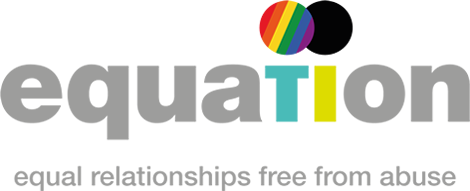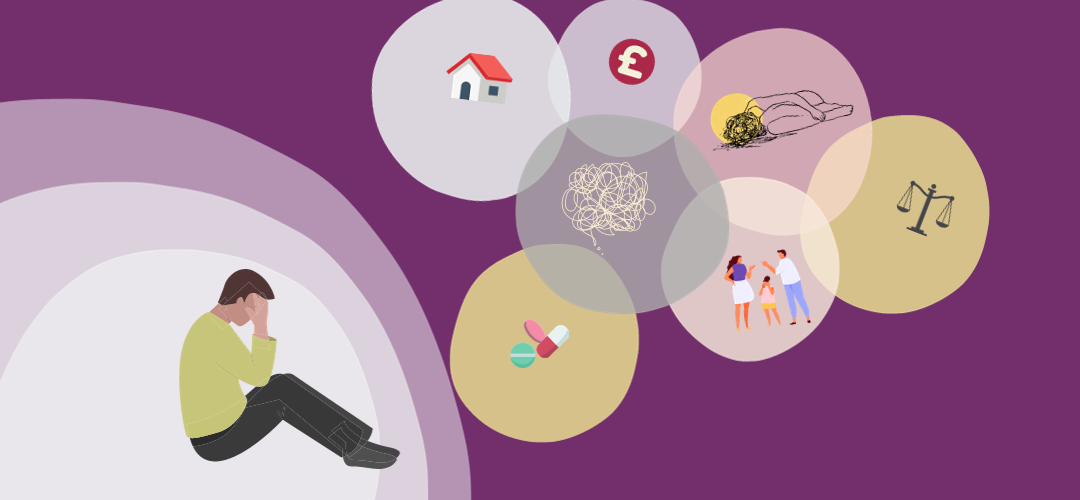Talk to us about severe multiple disadvantage
In every corner of society, there are people coping with multiple disadvantages – from challenges with homelessness, poverty, substance abuse and mental health issues to unemployment, poor physical health and of course, domestic or sexual abuse.
When someone is experiencing more than two of these, they’re said to be experiencing ‘severe multiple disadvantage’ or SMD.
Experiencing just one of these would have an obvious impact on someone’s life. And it doesn’t take much to see how being affected by one disadvantage can make it more likely to experience another. This often means that people facing SMD find themselves caught in a cycle, making it difficult to break free and improve their circumstances.
At Equation, the majority of referrals received by our Domestic Abuse Service for Men, are for people experiencing SMD. Just take a moment to think about it. All of our service users are reporting domestic abuse. There only needs to be one more issue for SMD to be present. And these factors are not uncommon.
Our expertise is working with people where SMDs exist. Any of our experienced Independent Domestic Violence Advocates (IDVAs) will tell you that when we first have contact with someone needing help – and that might be as a result of a referral from the police because of criminal proceedings or from the Mental Health Crisis team because someone has disclosed domestic abuse during their visit – that in order to help with the issue of domestic abuse, there are a complex web of issues to untangle. Those cases aren’t unusual cases for IDVAs. That is what we do.
How we help
- Compassionate support: IDVAs recognise the unique challenges faced by each person and know that every person’s journey is different
- Holistic Approach: Addressing not only the immediate needs of safety and risk, we help and work around issues such as housing (we have housing specialists), mental health, and substance abuse so we can move toward a solution
- Tailored support: There is no one-size-fits-all. Instead, personal strategies are built around the specific needs of each person to help them overcome the challenges they face
- Building trust: This is at the center of our work. Taking time to build trust paves way for good communication and collaboration
- Advocacy and empowerment: We advocate for our clients, ensuring they have access to essential services and resources. And we empower our clients by providing the tools and knowledge needed to advocate for themselves and move on with their lives.
Get in touch
- Call our helpline – 0800 995 6999 – Mon – Fri 9.30am – 4.30pm (7.30pm on Wednesdays) – 24/7 confidential answerphone available outside these times
- Email us – helpline@equation.org.uk – Mon – Fri 9.30am – 4.30pm
- Access support online using our online referral form including self-referrals.
Find out more
About how to get help.
Is it abuse
Not sure if what you're experiencing is abuse?
Get help
Stalking advisory service
Find out more.
How you can help
No matter how much time, money or resources you can afford to give, your support will make a difference.
£10
Give monthly
Could pay for four children
to take part in our early intervention projects
£30
Give once
Could pay for one primary school child to receive our healthy relationship education program
Support equation
Check out the other ways you can support us

